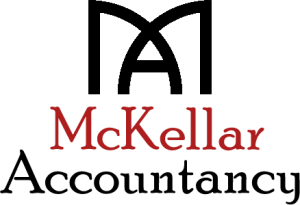[av_image src=’https://www.mckellaraccountancy.com/wp-content/uploads/2017/02/7.jpg’ attachment=’414′ attachment_size=’full’ align=’center’ styling=” hover=” link=” target=” caption=” font_size=” appearance=” overlay_opacity=’0.4′ overlay_color=’#000000′ overlay_text_color=’#ffffff’ animation=’no-animation’][/av_image]
[av_heading heading=’McKellar Accountancy June eNews’ tag=’h3′ style=” size=” subheading_active=” subheading_size=’15’ padding=’10’ color=” custom_font=”][/av_heading]
[av_textblock size=” font_color=” color=”]
eNews June 2020
In this month’s eNews, we report on the progress of the government’s schemes to help businesses during the COVID-19 pandemic. Chancellor Rishi Sunak announced important changes to the Coronavirus Job Retention Scheme, which will run until the end of October while HMRC has once again delayed the introduction of the VAT reverse charge. We look at the latest guidance and also analyse the impact of COVID-19 on tax policy and the wider economy. As the COVID-19 pandemic continues to dominate the economy, there are lots of issues to update you on.
Article Index
- Chancellor announces changes to Job Retention Scheme
- COVID-19: delay to VAT reverse charge on construction services
- Loan size increased to £200 million under large business interruption scheme
- Future Fund launches to give start-ups coronavirus support
- Coronavirus Statutory Sick Pay Rebate Scheme goes live
- Changes to insolvency and company law going through Parliament
- UK sets out post-Brexit tariff regime
- MPs open inquiry into £155 billion of tax reliefs
Chancellor announces changes to Job Retention Scheme
Chancellor Rishi Sunak has announced changes to the government’s Coronavirus Job Retention Scheme (JRS), which will be slowly wound down between July and October.
The changes mean businesses will be able to bring furloughed employees back on a part-time basis from 1 July.
Furloughed staff will continue to get 80% of their salary until the scheme finishes at the end of October. However, employers will be expected to gradually contribute more towards furloughed employees’ salaries.
The taxpayer contribution will remain at 80% during August but employers will have to pay national insurance and employer pension contributions.
In September, employers will be asked to start paying 10% towards people’s wages, which will rise to 20% in October.
JRS closes to new entrants from 30 June, but more critically, 10 June is the last date by which an employee can be put on furlough for the first time.
Dame Carolyn Fairbairn, Director-General at the Confederation of British Industry, said:
‘Introducing part-time furloughing as more stores and factories start to open will help employees to return to work gradually and safely. Many more businesses will feel supported during this vital restart phase.
‘Firms understand the scheme must close to new entrants at some point and that those using it in future will need to make a contribution to help manage the costs.
‘However, previously viable firms not able to open until later, particularly in leisure, hospitality and the creative industries, may need further assistance in the coming months.’
Internet link: GOV.UK publications
COVID-19: delay to VAT reverse charge on construction services
On 5 June 2020, HMRC announced a five-month delay to the introduction of the domestic VAT reverse charge for construction services, due to the impact of the COVID-19 pandemic on the sector.
The change will now apply from 1 March 2021 and will overhaul the way VAT is payable on building and construction invoices as part of moves to reduce fraud in the sector. Under the domestic reverse charge, the customer receiving the service must account for the VAT due on these supplies on their VAT return, instead of paying the VAT to the supplier..
The change was originally scheduled to come into effect from 1 October 2019, but was then deferred for 12 months, after industry bodies highlighted concerns about lack of preparation and the impact on businesses.
Now the start date has been put back from 1 October 2020 to 1 March 2021.
There will also be an amendment to the original legislation. Businesses are excluded from the reverse charge on relevant supplies where they are end users, or intermediary suppliers. If so they must inform their subcontractors, in writing, that they are end users or intermediary suppliers.
HMRC says the additional amendment is designed to make sure both parties are clear whether the supply is excluded from the reverse charge. It reflects recommended advice published in HMRC guidance and brings certainty for subcontractors as to the correct treatment for their supplies.
HMRC says it will continue to focus additional resources on identifying and tackling existing perpetrators of fraud in the construction supply chain. It will also work closely with the sector to raise awareness and provide additional guidance and support to make sure all businesses will be ready for the new implementation date.
Internet link: GOV.UK publications
Loan size increased to £200 million under large business interruption scheme
Several changes to the CLBILS scheme have taken effect from 26 May. The government has extended the maximum loan size available through the Coronavirus Large Business Interruption Loan Scheme (CLBILS) from £50 million to £200 million.
However, companies borrowing more than £50 million through the CLBILS will be subject to restrictions on dividend payments, senior pay and share buy-backs during the period of the loan. This will include a ban on dividend payments and cash bonuses, except where they were previously agreed.
Suren Thiru, Head of Economics at the British Chambers of Commerce (BCC), said:
‘It is good to see the government continue to listen to business concerns and make improvements to existing schemes.
‘These important changes could make a real difference to larger firms in particular, and alongside the other lending support schemes will help ensure that more businesses of all sizes get access to the finance they need to help weather this unprecedented economic storm.’
Internet link: British Business Bank website
Future Fund launches to give start-ups coronavirus support
On 20 May 2020, the government launched its Future Fund package, which aims to support start-up businesses not eligible for other COVID-19 rescue measures.
The Future Fund offers government loans of between £125,000 and £5 million to UK-incorporated companies, provided private investors at least match the funding supplied by the state.
The package is aimed at supporting innovative early stage companies not eligible for existing COVID-19 support.
The Future Fund is administered by the government-backed British Business Bank (BBB). The loans can be repaid or converted into shares in the Investee Company in a variety of circumstances, including fundraisings, exit events and upon the maturity of the loans.
The fund is currently due to run until at least the end of September.
Internet links: Investor information and company information
Coronavirus Statutory Sick Pay Rebate Scheme goes live
On 26 May 2020, HMRC opened up its Statutory Sick Pay (SSP) rebate claim service.
Eligible employers are able to recoup up to two weeks’ worth of SSP payments made to employees off work for COVID-19-related reasons since 13 March 2020 (16 March 2020 if the employee was shielding). This is an ongoing scheme for which an end date has not yet been announced.
The scheme is potentially worth up to £191.70 per employee that an employer has made SSP payments to for COVID-19-related reasons.
For the purposes of making a claim, it does not matter whether the employee was displaying symptoms themselves or was living with someone who was displaying symptoms. It also does not matter whether the employer topped up their earnings (although only the SSP element is eligible for the rebate).
A rebate cannot, however, be claimed in relation to employees who were furloughed at the time of illness or absence, and for whom the separate Coronavirus Job Retention Scheme grant was claimed.
Employers will be eligible for an SSP rebate if they had a Pay as You Earn (PAYE) scheme as of 28 February 2020, and (along with any connected employer) employed fewer than 250 employees as at that date. Employers must also be within their State Aid limits under the EU Commission temporary framework.
Internet link: GOV.UK publications
Changes to insolvency and company law going through Parliament
The government is making changes to insolvency and company law as a result of the COVID-19 pandemic.
The Corporate Insolvency and Governance Bill outlines that struggling companies will be given extra time to consider rescue plans presented to them. As part of the changes, companies will have 20 business days to consider a rescue plan, which can be extended to 40 days at the discretion of creditors or the Court.
The Bill stipulates that a company will remain under the control of directors; however, the insolvency process must be overseen by a licensed insolvency practitioner.
Additionally, restructuring plans have been introduced in the Bill, which will bind creditors and allow the insolvency process to adjust as the COVID-19 pandemic changes.
Colin Haig, President of insolvency trade body R3 said:
‘This Bill represents the biggest change to the UK’s insolvency and restructuring framework for almost 20 years.
‘The measures contained in this Bill will support the profession’s efforts to help businesses navigate the enormous economic damage caused by the pandemic.’
Internet link: Parliament website
UK sets out post-Brexit tariff regime
The UK government published its plans for a new import tariff regime following the end of the Brexit transition period.
Following its departure from the EU, the UK has the ability to set its own rules and charges.
The scheme includes the abolition of tariffs on imports worth over £30 billion, although economists say the impact on the cost of living will be small.
Some tariffs will be maintained on imported items such as beef and cars to protect British producers. Other items will have tariffs simplified, and expressed in pounds instead of euros.
Josh Hardie, Deputy Director General at the Confederation of British Industry (CBI), said:
‘The new tariff scheme will provide businesses with much-needed clarity on post-Brexit trade.Simplifying the system, scrapping tariffs under 2%, reducing duties on sustainable products are all things firms can work with.
‘Sticking closely to many existing tariff levels will give other countries incentive to agree trade deals with the UK.
‘However, businesses will need time to assess the detail, and ensuring there’s a system in place to address issues as they arise will be critical. Crucially, firms’ number one priority is for the government to strike a deal with the EU and ensuring continuity of existing trade deals.’
Internet link: GOV.UK publications
MPs open inquiry into £155 billion of tax reliefs
The Public Accounts Committee (PAC) has opened an inquiry into the UK’s management of £155 billion of tax relief.
The inquiry follows the February publication of a National Audit Office (NAO) report that identified over 300 such tax interventions, totalling £155 billion per year.
The NAO raised concerns about the effectiveness of management of tax expenditures by the Treasury and HMRC.
It found that there is no formal framework governing the administration or oversight of tax expenditures.
The NAO said that although the Treasury and HMRC have begun steps to increase their oversight of tax expenditures and more actively consider their value for money, these will not be enough on their own to address concerns.
Commenting on the inquiry, John Cullinane, Tax Policy Director at the Chartered Institute of Taxation, said:
‘We greatly welcome the PAC taking up this important issue.
‘Governance of tax reliefs in the UK is not systematic or proportionate to their value or the risks they carry. There is a mismatch between the significant effort in government and to an extent Parliament that rightly goes into new tax measures, and the relative lack of attention to how effective those measures prove over time. This is particularly the case with tax expenditures.
‘Unless HMRC and the Treasury actively monitor the use and impact of tax reliefs, and act promptly to analyse increases in their costs, we cannot assume that these reliefs will be value for money.’
Internet link: Parliament website
[/av_textblock]
[av_social_share title=’Share this entry’ style=” buttons=” share_facebook=” share_twitter=” share_pinterest=” share_gplus=” share_reddit=” share_linkedin=” share_tumblr=” share_vk=” share_mail=”][/av_social_share]







